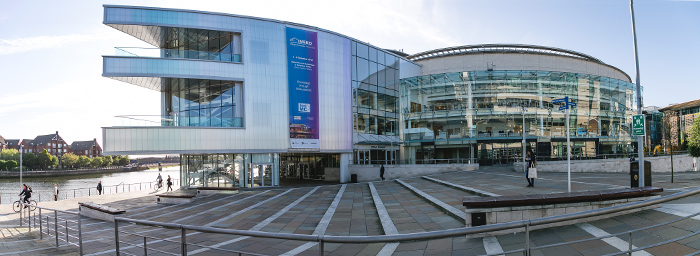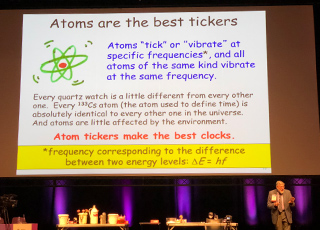World Congress of the International Measurement Confederation (IMEKO) is a non-governmental federation of 42 Member Organizations individually concerned with the advancement of measurement technology. Its fundamental objectives are the promotion of
The XXII IMEKO is being held in the UK for the first time in over 40 years and hosted by the Institute of Measurement and Control with active involvement of many other UK professional bodies, the National Physical Laboratory, Universities and industry.
Belfast, the capital city of Northern Ireland, is playing host to delegates from across the world for what promises to be an interesting and scientifically challenging World Congress, bringing together leading experts from many countries to report on the latest exciting developments in their fields. 'Knowledge Through Measurement', a theme from the work of Lord Kelvin, the great scientist, engineer and entrepreneur who was born in Belfast, is the strap-line for IMEKO 2018.
The invited speakers are some of the most distinguished in their field, and many sessions held during the week will provide real insight into what is new in this most topical and economically important of fields. The exhibition aims to showcase some of the leading developments in industry from the UK, Europe and indeed across the world.

Conference venue: Belfast Waterfront, Belfast, UK
In IMEKO 2018, I made a presentation titled by "Improvement of quantitative depth evaluation for diffraction-limited microgroove using LED light source". This speech introduced a novel optical inspection method to detect the depth of microgrooves with a width less than the diffraction limit. Using this optical method, the depth of diffraction-limited microgrooves can be related to the near-field optical phase difference, which cannot be practically observed but can be computed from practical far-field observations. The experiment results by both laser illumination and LED illumination were shown to demonstrate the feasibility of our proposed method and developed measurement system. In addition, by the results comparison of two light sources, it was proved that the speckle noise is obviously reduced by LED illumination and the accuracy of measured depths for diffraction limited microgroove is improved.
For my presentation, I received a question from Prof. Rainer Tutsch (TU Braunschweig). The question is about the limitation of our proposal, e.g. the minimum detectable width of microgroove? I replied that if the bottom response from micro-groove can be collected in the far-field plane, our method has the potential to achieve depth measurement. The limitation of this method is not only affected by the absolute width of microgroove, but also influenced by the aspect-ratio. The FDTD simulation results indicated the detectable aspect-ratio of 4 for 200-nm-wide and 3 for 100-nm-wide microgroove. However, the results of detectable aspect-ratio are not verified by experiments.

Keynote speech by Professor William D. Phillips
IMEKO 2018 is a well-organized and impressive international conference, where I truly learned something new and broadened my horizons. Especially, Professor William D. Phillips (awarded the 1997 Nobel Prize in Physics for the work on laser cooling, a technique to slow the movement of gaseous atoms in order to better study them) gave a keynote speech and performed some interesting experiments on the opening ceremony. I think all the attendees enjoyed this keynote speech and were touched by his rigorous attitude.
In this conference, I completed an oral presentation titled by "Improvement of quantitative depth evaluation for diffraction-limited microgroove using LED light source". During and after my presentation, I received some comments and questions, which are our important future work. Besides learning some new knowledge about optical measurement and manufacture, closely related to my research field, I learned some technologies in force measurement, temperature measurement and measurement in robotics et al. The communication with researchers from all over the world is greatly inspired and unforgettable.
Here, let me take this opportunity to express my deep gratitude for the support and grant of the international conference attendance from Marubun Research Promotion Foundation.
